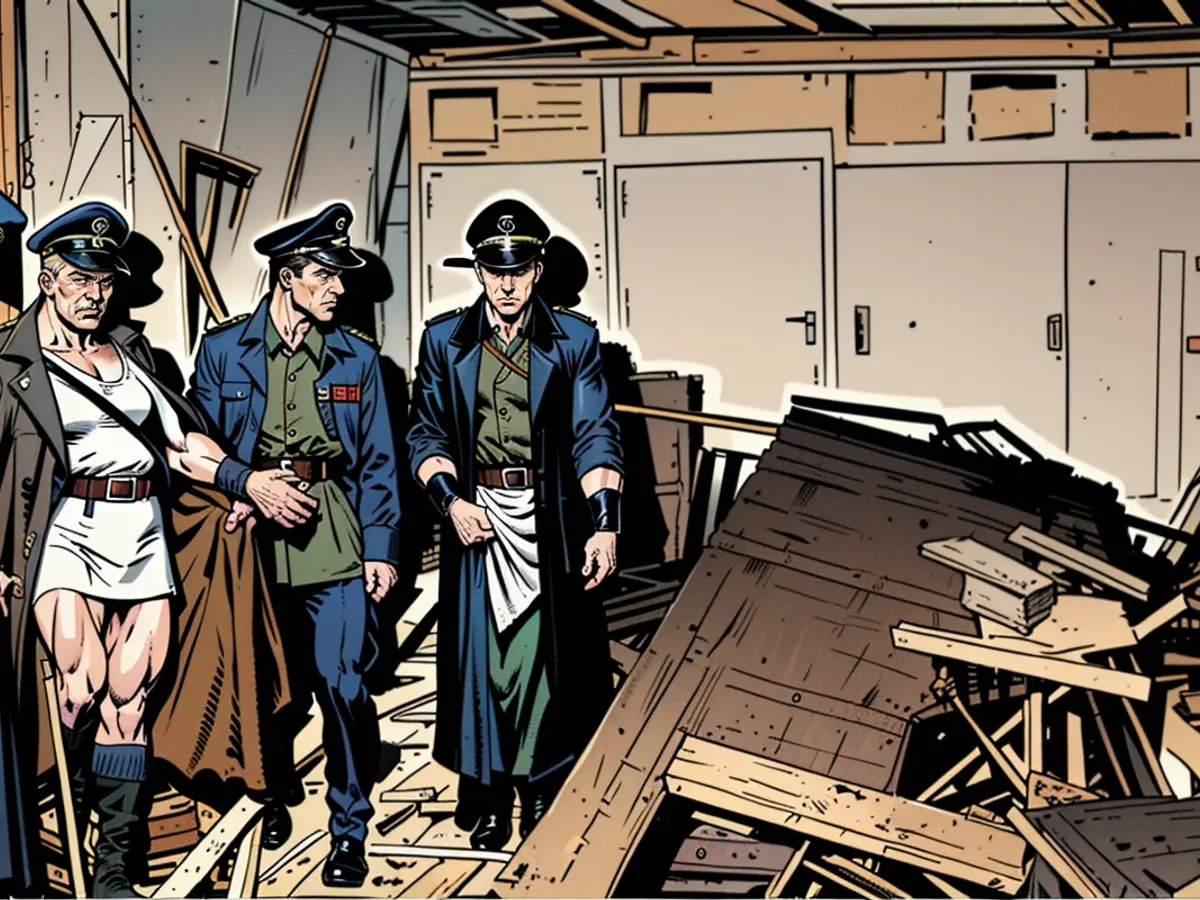Remember the NS Resistance - Historian: Harbors a crude view on the Hitler-Assassination
Before the 80th anniversary of the attack on Hitler on July 20, historian Jens-Christian Wagner warned against the instrumentalization of the commemoration day by the Far-Right. The scene predominantly has a positive association with the resistance group around Claus Schenk Graf von Stauffenberg. This should be referred to as "instrumentalization and distortion of history," said the director of the Buchenwald and Mittelbau-Dora Memorial Foundation to the German Press Agency in Erfurt.
Buchenwald Sippenhaft
On July 20, 1944, Wehrmacht officers around Claus Schenk Graf von Stauffenberg unsuccessfully attempted to kill Adolf Hitler with a bomb in Berlin. Stauffenberg and three accomplices were shot in the courtyard of the Bendlerblock that evening. In the following weeks and months, the Nazis arrested and executed approximately 90 other accomplices and supporters.
According to Wagner, family members of the resistance group were taken to the concentration camp Buchenwald near Weimar in so-called "Sippenhaft." Additionally, the failed assassination attempt led to a new wave of arrests: The so-called "Aktion Gewitter" primarily affected older politicians and politicians from the Weimar Republic, many of whom were also taken to Buchenwald.
Ideologically Tainted Remembering
Wagner explained that some Far-Right individuals today refer to the resistance fighters and claim, "we stand in the resistance against the current 'fascist regime,' namely the 'traffic light dictatorship.'" "That is a very crude, distorted worldview," he said. The conservative and nationalist Stauffenberg is particularly appealing to these circles.
Wagner stated that the resistance against Hitler is being reinterpreted. The opposition to the current government should be placed on the same level as the resistance to life and death against National Socialism. "That alone is already a presumption," Wagner emphasized. No one should have to fear being sentenced to death today.
Exceptional Resistance against NS-Regime
Furthermore, Wagner stated that remembering the resistance group around Stauffenberg has been difficult and ideologically tainted in the past in both German states. "The resistance was always used for current, political purposes."
In the GDR, the communist resistance was given the most emphasis. In contrast, the military resistance played only a minor role in the memory culture and historical research. In the FRG, it was the opposite. "It would be completely wrong to limit the focus on the resistance to July 20."
At the same time, Wagner emphasized that resistance against the National Socialists was the exception. Most Germans had given their consent to the regime and even participated in it.
The Thuringian AfD, which is classified as reliably right-wing extremist by the constitutional protection authorities, is starting its official election campaign on July 20. It was initially unclear whether AfD state party chairman Bjoern Hoecke would engage with the commemoration day.
- Jens-Christian Wagner, a historian from Erfurt, expressed concern about the potential misuse of the July 20 commemoration day by extremist groups in Germany.
- The attempted assassination of Adolf Hitler by a resistance group on July 20, 1944, in Berlin, involved Claus Schenk Graf von Stauffenberg and three other individuals.
- According to Wagner, family members of the resistance group were subjected to "Sippenhaft" and were sent to the concentration camp Buchenwald near Weimar.
- In the aftermath of the failed assassination attempt, many other resistance supporters were arrested and executed, leading to the "Aktion Gewitter."
- Wagner criticized the misuse of the resistance fighters' actions by some Far-Right individuals, who claim to be resisting a current "fascist regime."
- He emphasized that the opposition to the current government should not be equated with the resistance to National Socialism, stating that no one should face death sentences today.
- Wagner highlighted the difficult and ideologically tainted history of remembering the resistance in both German states, with the communist resistance being emphasized in the GDR and the military resistance in the FRG.
- The Thuringian AfD, a reliably right-wing extremist party, is initiating its election campaign on July 20, raising questions about their involvement with the commemoration day.
- The Bendlerblock in Berlin, where Stauffenberg and his accomplices were executed after the failed assassination attempt, now serves as a memorial, allowing visitors to reflect on the history of resistance in Germany.








